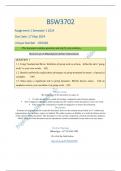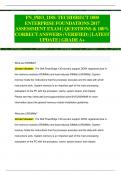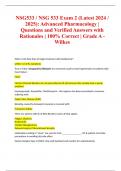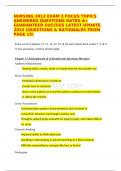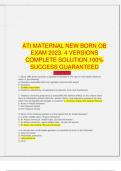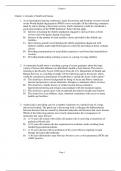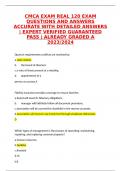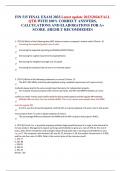Exam (elaborations)
BSW3702 Assignment 1 (COMPLETE ANSWERS) 2024 (632428)- DUE 12 March 2024BSW3702 Assignment 1 (COMPLETE ANSWERS) 2024 (632428)- DUE 12 March 2024
- Course
- BSW3702 (BSW3702)
- Institution
- University Of South Africa (Unisa)
QUESTION 1 1.1. Using Toseland and Rivas’ definition of group work as a basis, define the term “group work” in your own words. (02) 1.2. Identify and briefly explain three advantages of group treatment by means of practical examples. (06) 1.3. Status plays a significan...
[Show more]
